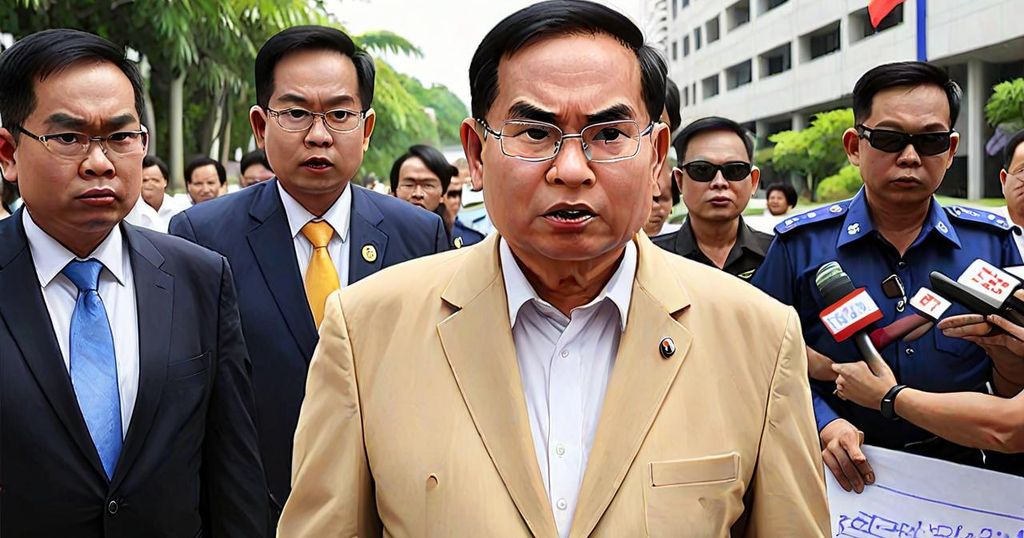The Thai Constitutional Court has officially received a complaint aimed at removing Prime Minister Srettha Thavisin from his position. The complaint is related to his decision to appoint a lawyer with a controversial past, which has further complicated the legal situation for the current administration.
This latest development comes after the resignation of three ministers in recent weeks. This adds to the government’s challenges in revitalizing the economy and securing funds for cash handouts to millions of citizens.
Even though 40 senators have called for Srettha’s suspension while the court deliberates, the Prime Minister continues to hold his position. He now has a 15-day period to present his defense in court.
In response to the complaint, Srettha has expressed his sincerity and preparedness to provide answers to any queries. He has emphasized his government’s dedication to the welfare of the citizens while minimizing the ongoing investigations.
The lawyer in question, Pichit Chuenban, underwent a rigorous vetting process before being appointed into the prime prime minister’s office. The government asserts that Pichit’s selection was in full compliance with the law.
Pichit, a close associate of the politically influential Shinawatra family, resigned from his position on Tuesday in an attempt to shield Srettha from the legal consequences of his appointment. This decision came after Pichit’s previous imprisonment for contempt of court and the revocation of his law license following allegations of bribery.
Pichit, as a lawyer, gained notoriety for handling high-profile cases involving former prime ministers Yingluck Shinawatra and Thaksin Shinawatra, a key figure in Thai politics. Thaksin, a close ally of Srettha, is the founder of the ruling Pheu Thai party, which has been victorious in the majority of Thai elections over the past two decades.
The court has yet to announce a timeline for its decision. If Srettha is removed from office, a new government would need to be established. This would entail the nomination of a new candidate for the premiership, as well as a vote in the parliament where Pheu Thai is not the largest party.
The incumbent Prime Minister, a well-known figure in the real estate industry, assumed his position in August of last year after negotiations with royalist military factions, following a protracted political deadlock.
Critics of the government argue that Pichit’s appointment was a result of his close relationship with Thaksin, who continues to wield influence in Thai politics despite officially retiring and recently returning from a prolonged exile.
Amidst these developments, Thaksin himself faces potential prosecution for alleged defamation against the monarchy, further complicating the already intricate political landscape in Thailand.
As the case unfolds, it remains to be seen how this legal challenge will impact the stability and leadership of Thailand’s government.
Source:
Wongcha-um, P., Thepgumpanat, P., & Setboonsarng, C. (2024). “Turmoil in Thai Government as Court Considers Prime Minister’s Removal”. Thomson Reuters.

Leave a Reply